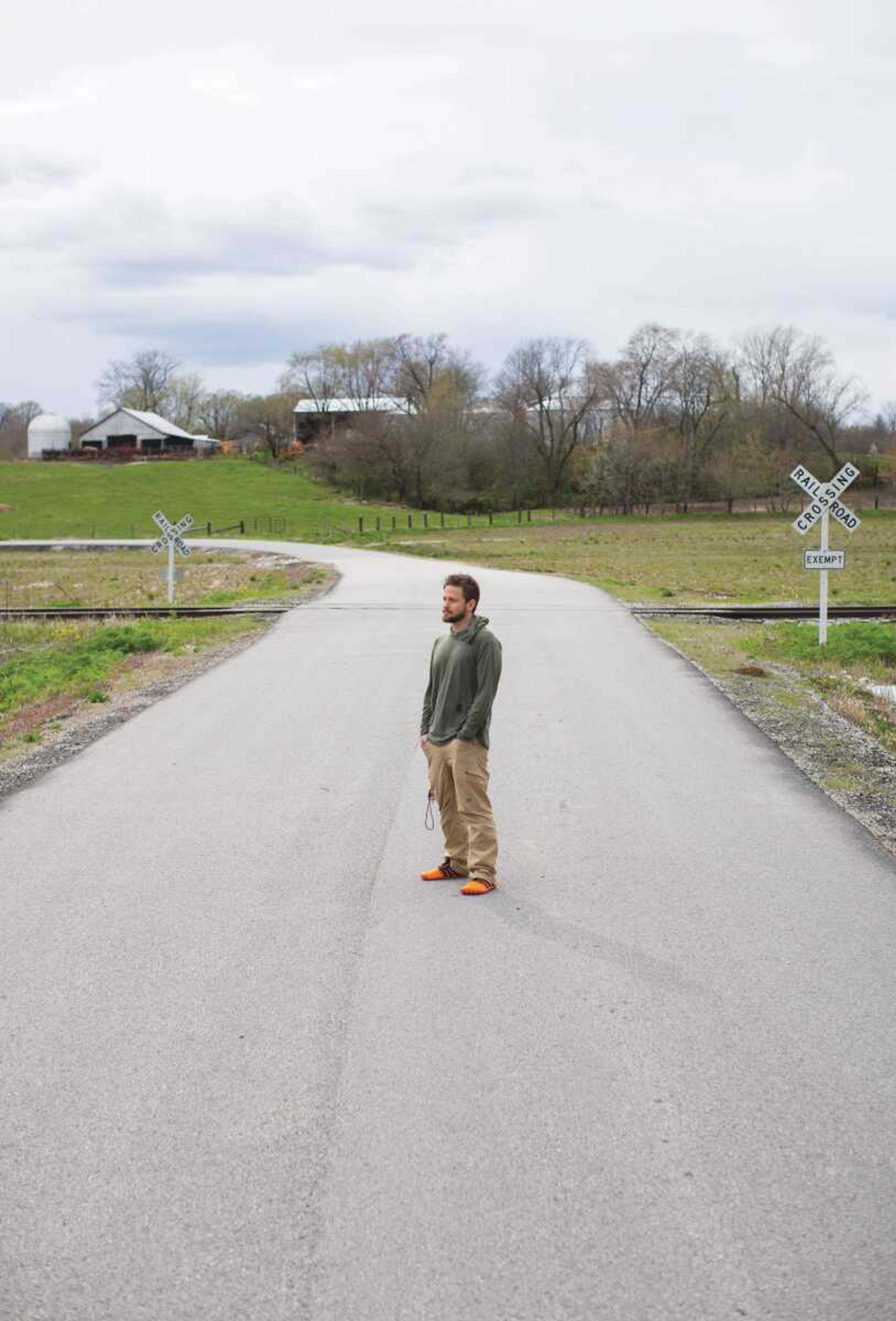A New York City reporter moves to Southeast Missouri and learns about a new kind of progress
Unlike the Manhattan grid, the lines of my life’s trajectory have never been straight. How does a New Yorker even end up here? “God draws straight with crooked lines,” states a centuries-old aphorism.
Unlike the Manhattan grid, the lines of my life’s trajectory have never been straight. How does a New Yorker even end up here?
“God draws straight with crooked lines,” states a centuries-old aphorism. Yet in Manhattan, straight design yields only crooked things. New York City’s linear geometry cuts through everything but human nature. City lines are straight and short. Human lines? Well, those are long and twisting.
As I sat reading in the backyard of my new Cape Girardeau property, sudden mooing broke birdsong as a farmer released his cattle. I realized just how far I’d come from city life. Images spun like montage in my mind; a crush of recollection:
Gleaming windows towering up towards the sun like a thousand bright eyes gleaming in a vertical-desert without heat. A hundred dialects, a million engines and the furious rhythms of industry on a continuous loop. People dissolved in sheer numbers, becoming spectral, not-quite-real, somehow part of the landscape, stuck in daily commutes like flies in glue; crammed together, pretending to be alone.
I imagined the inhospitable atmosphere of an alien planet, beautiful in extremity, its hostility somehow exotic like the surface Jupiter. A lucent shadow, oozing across the pavement like something from a black egg, yolks staining the snow dark in winter, oozing into the pools of murky water that collect by sidewalks after rainstorms; grime.
I watched as an exterminator sprayed insecticide across my Cape property, near my once-organic plants. Suspiciously eyeing the open grill under his line of fire, I wondered if I could ever barbecue again without making myself sterile. I wondered whether poison is ever confused with progress.
Southeast Missouri can’t compete with New York City for efficiency, but efficiency comes at the cost of personal attention. Mass transit, mass dining, mass entertainment; few places on earth are built to handle the masses like New York City. Stick “mass” before any of Manhattan’s great attractions. It’ll probably fit.
Playing Cape Girardeau
In Southeast Missouri, family affairs seem closer to being the rule than the exception. At least compared to New York, I’ve met more people here who work in their family business, shoulder-to-shoulder with siblings, spouses or children.
As with any small town, there’s also an instinct to escape and maybe move to St. Louis, New York City or beyond. Not every Cape-native wants to stay close to their roots but, living in Cape, I have seemed to run into those who do. People will leave small towns to make it big in the city, but we also leave big cities to live small. Real estate mogul David Lichtenstein once said he’d rather be the only horse in a one-horse town than be the third horse in a big city. Then again, small towns have problems, too. Vocalist Tim Godlove and guitarist Zach Smith of the local band Isabella said they had a difficult time playing original music in Cape Girardeau.
“If you play in Cape, most of the time you’re playing covers to get the bar scenes. From the start, we decided to play our own music. So, we played in St. Louis. Eventually we started doing covers to get into bars here, and two years into it we’re playing all-original sets and getting our homies from St. Louis to come and help create a local music scene here,” Godlove explained.
Smith noted that Isabella is, “realistically,” more of a Perryville than a Cape Girardeau band, although the group influenced the Cape music scene. Godlove added that a community existed well before Isabella came along. The band may have just helped turn away the trend favoring cover bands who only play bars. Isabella’s upcoming show at Ebb and Flow Fermentations in Cape Girardeau will be the second rock show the venue has ever hosted.
“This next generation is coming up with original music instead of covers, and it feels like we helped pave the way for that,” Godlove said. He also used the word “family” when describing his band.
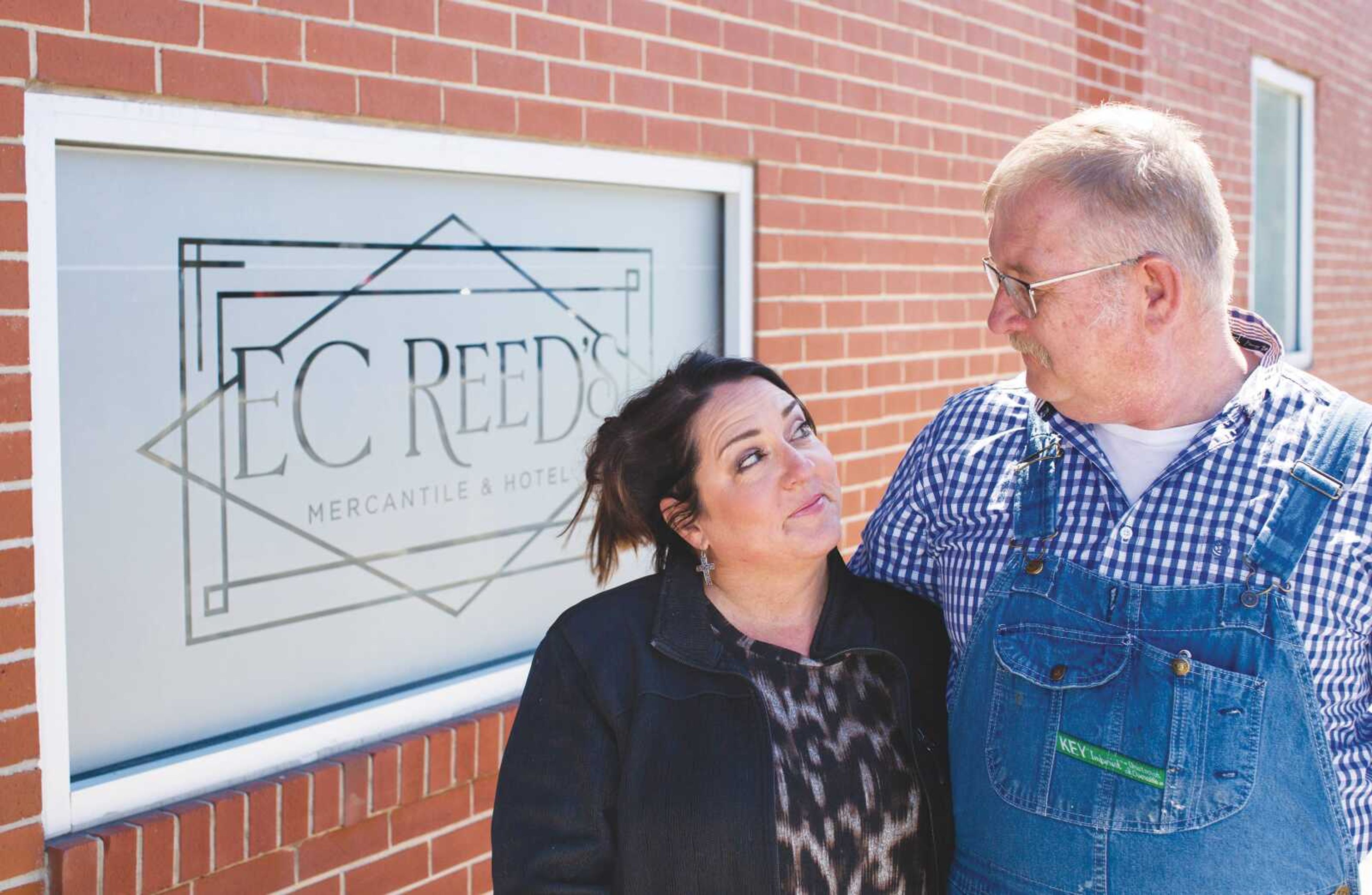
A Marble Hill hotel
Isabella’s attitude is carried by other Southeast Missourians, especially business owners who wish to pave the way for revitalization. There is a deep desire to change things and break open untapped wells of opportunity. For many Southeast Missouri business owners, their values are centered on creating opportunities similar to those once handed to them.
“A little corny to say it out loud, but in my heart it means something to give opportunities back to others,” said Everett Reed. Everett is behind the capital “E” in EC Reed’s Mercantile and Hotel in Marble Hill. Christy, Everett’s wife, is the woman behind the “C.”
“We want to revitalize the downtown area and make it a destination spot,” Christy said. “This is the only hotel in our county and we have upgraded everything.”
The hotel has been open since last February, and the mercantile is set to open this summer. Christy has planned for the shop to showcase Missouri-made goods.
“It’s gonna be a spot that people will be excited to go to. If they’re from out of town, they will take that extra 30 minutes.”
Christy runs the hotel with her sister as property manager. Her husband, Everett, offered a personal story behind the winding road that led him to the hotel.
“Everyone’s life trajectory changes,” Everett said. “Coming from Bollinger County as a young man, I like to jokingly say that, when I graduated high school, there were three options: hog farmin’, loggin’, or leavin’. I chose to leave and go to the service. My time there was such that I gained the majority of my life skills.”
In the Coast Guard, Reed learned “to work with folks that may have differing opinions, and manage those differences.” Part of Reed’s current vision is to build his community right here, so folks won’t have to leave in pursuit of meaningful experience.
“Lack of exposure to other things limits one’s ability to dream,” Reed said. A long time ago, a young Everett Reed was picked to attend a leadership conference, and got to dreaming.
“It was my first time on a train, my first time out of the county to witness something different. It changed the trajectory of my life. It gave me an inkling of the fact that there were things bigger than what I might have known as ‘the world.’ That always stuck with me. That always meant something to me, very deep in my heart,” Reed said.
A general store, the “Mercantile” portion of EC Reed’s Mercantile and Hotel, will be opening in the next few months. Reed framed the new expansion around providing opportunities to his community.
“This whole process is partly to enable another young person to see something different than what they know. Maybe spark a seed to grow in them. We can show folks that the accepted standard doesn’t have to be the only standard. Folks here deserve to have as good or better than anyone else. They’re good people. They deserve as much as they want. To accept anything less is a shame,” Reed said.
Reed’s interest in his community is not unusual in Southeast Missouri. It’s not unusual anywhere for people to show an interest in their community, New Yorkers included. But back in the city, my community were people I picked. Selecting a community in a big city can be like picking out what to wear. After years of living in NYC, I never met the neighbors who lived beyond my apartment’s thin dividers. Yet during my first month in Cape, I’d met all four tenants around me.
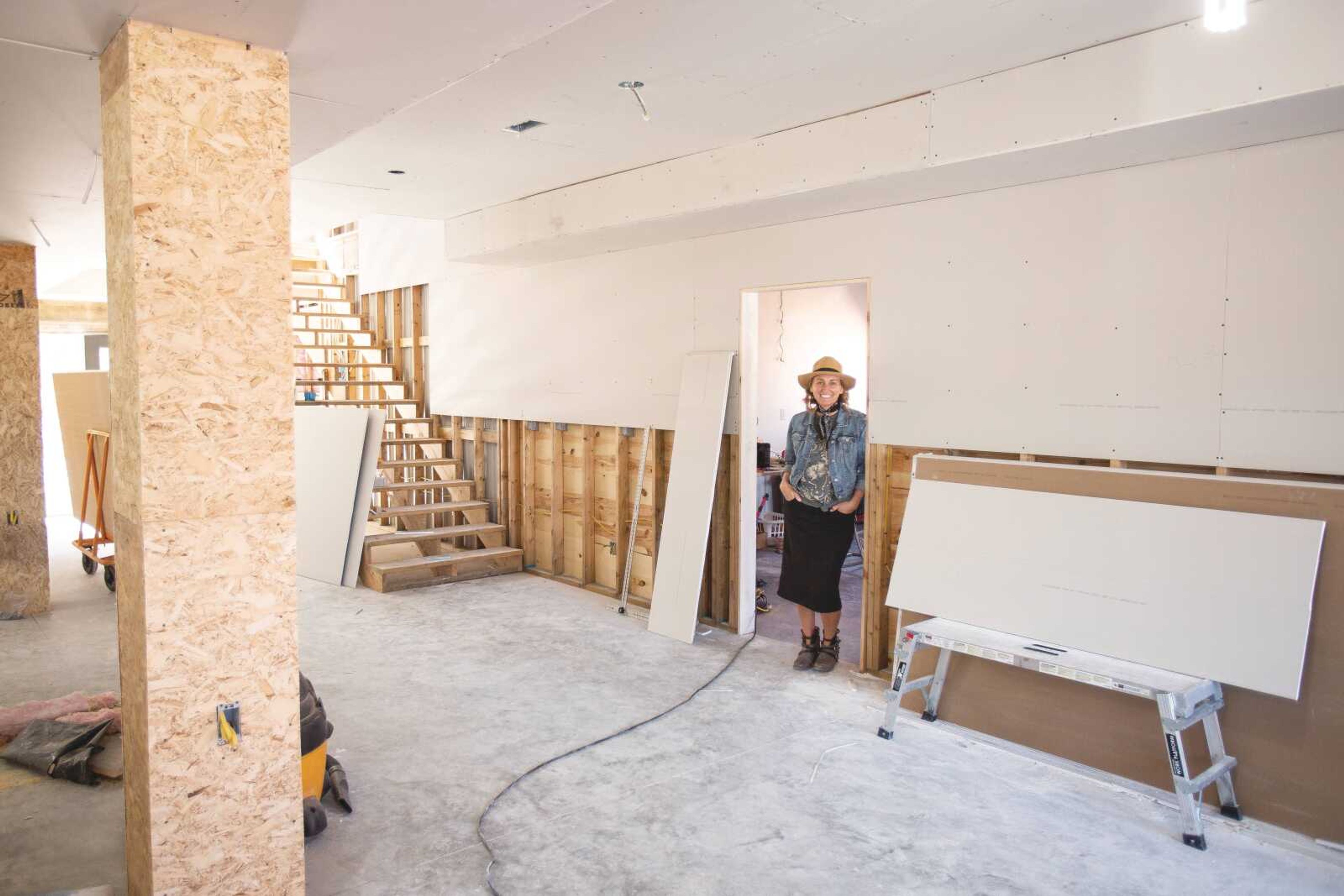
Connection over coffee
Down the street from the Reed’s Hotel is 573 Coffee House, owned by Misty Davis. Davis, too, described her vision, bigger than coffee, being about making “a place of community.”
Davis, like Reed, came from a small town that didn’t expose her to many new things. A company convention opened Davis’s eyes to a wider world.
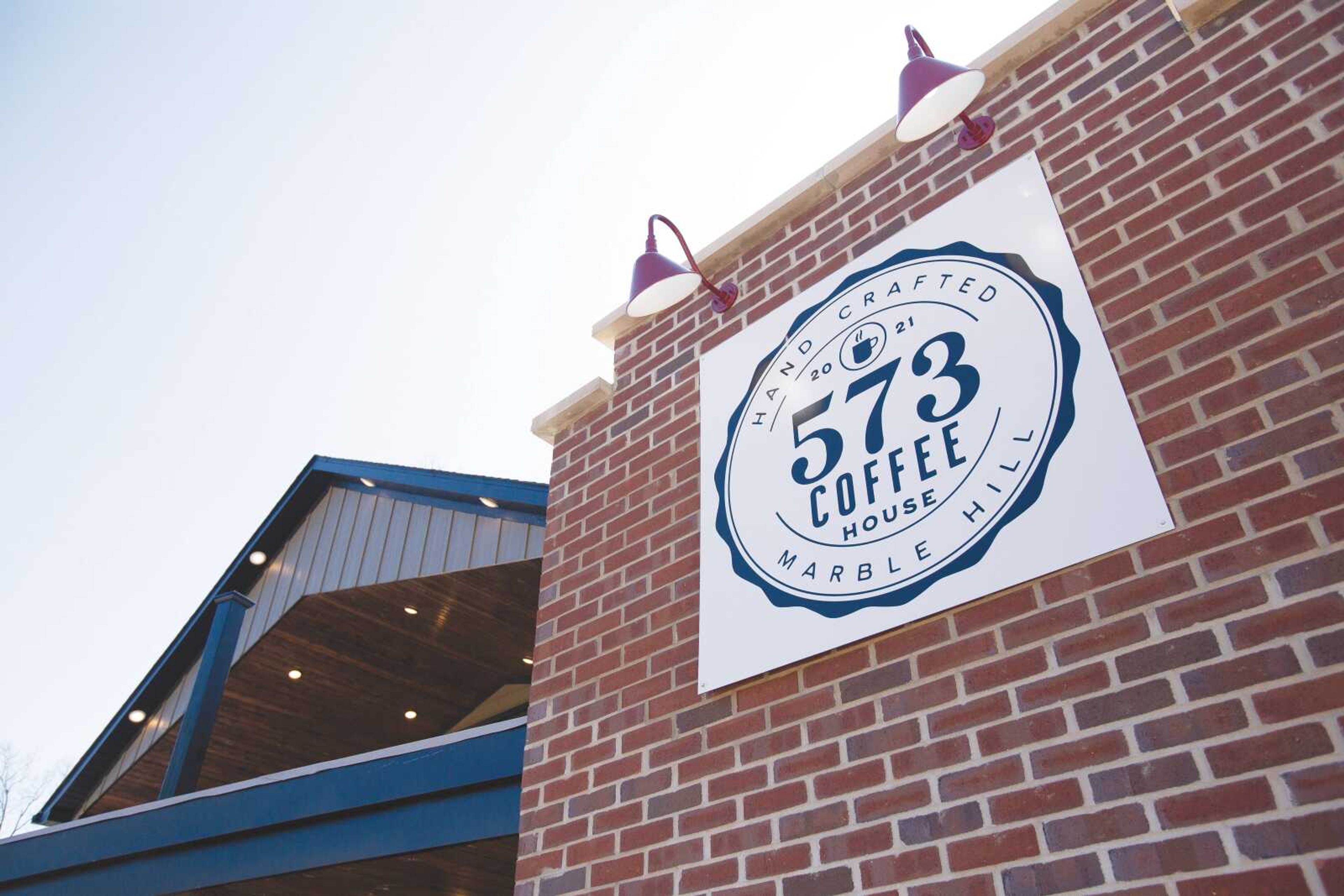
“Being from a small community, we’re all different but kind of the same. [At the convention] I bonded with others I didn’t know and that was so impactful to me. None of us had anything common, yet we came together for one goal. We didn’t focus on what was different. To this day, I still have a connection with those women, the experience of getting together with different people who all thought different and came from different places, but bonded over the same thing. That’s what I want to bring back to our community — a place for people to come together even though we’re not exactly alike. I want to create a place to connect as human beings, support and uplift each other. All of that is even better when you add in a cup of coffee,” Davis said.
Like Reed, Davis traces the values behind her business back to a time when her sheltered small-town experience shattered, revealing something meaningful hidden in that broken glass.
“There’s so much division in the world today that we forget what we have in common with our fellow human beings, we forget that, at the very root, we all want good for our world and our people. I want to create an atmosphere for people to come together and just lay all their stuff aside, whether you’re pro- or anti- whatever. Let’s just come together as humans and just connect over good food and coffee,” Davis said.
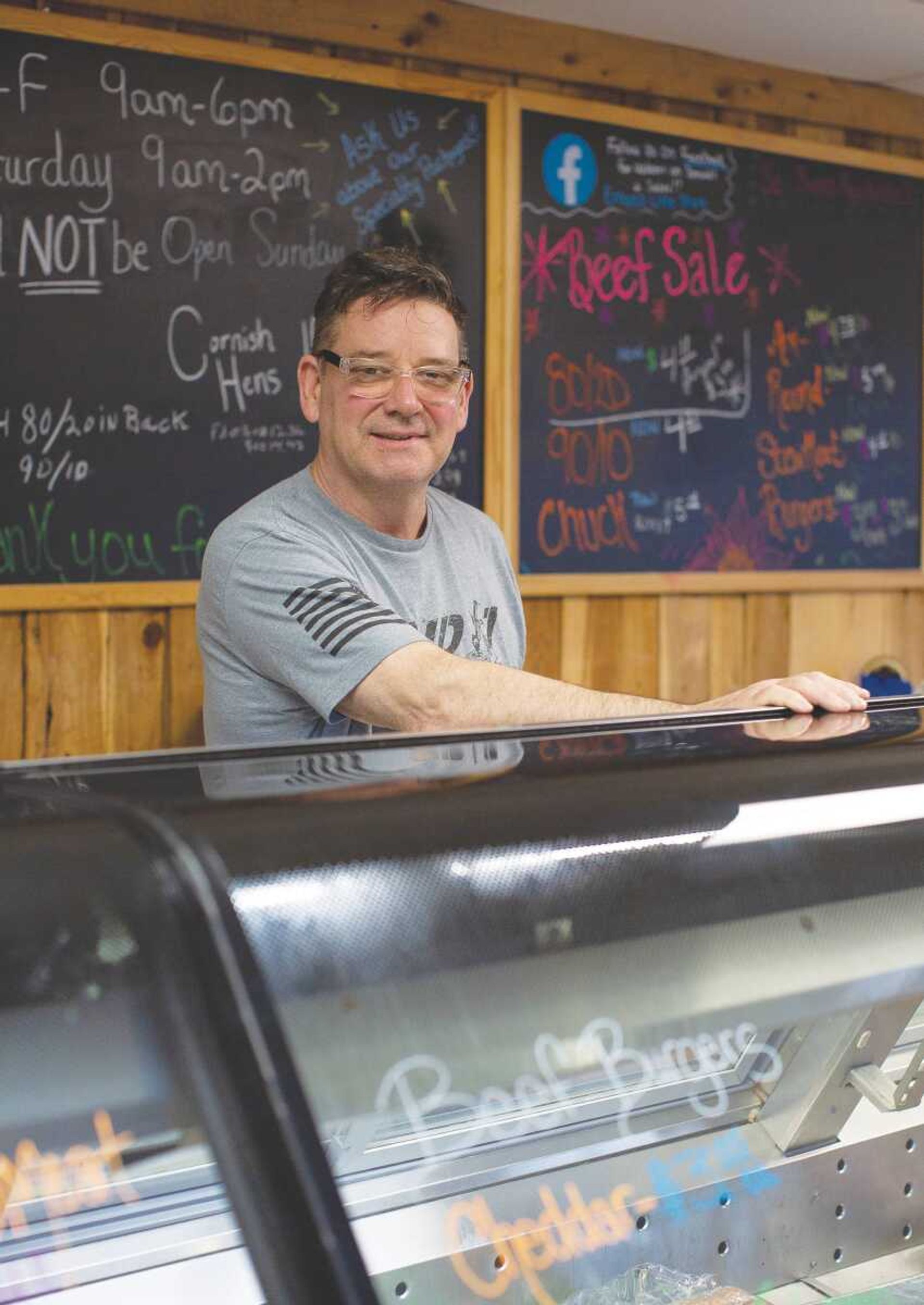
‘I know the secret’
Last week, I stood with Anton Kotar, owner of Emory’s Little Shop, a fantastic butcher store off State Highway FF in Jackson. We spoke together in a freezing cold room, surrounded by the hanging carcasses of cows that Kotar puts so much love and attention towards. It’s the kind of dedication you can taste on the plate.
After a recent motorcycle accident, Kotar broke his neck and was given a 30% chance of survival. Even in a cast and walking with a limp, Kotar was personally on the ground overseeing the slaughter and processing of fresh beef. Even injured, Kotar was visibly a man in his natural element. He shared the pride he takes in overseeing the Emory store’s process from pasture to plate. Discussing the seemingly impossible task of getting prime beef out of grass-fed cattle, Kotar laughed when I suggested no one knows that secret.
“Oh, I know the secret! But this is an industry of competition,” he said sagely.
In the face of massive competition, including foreign investments in cattle, Kotar has built a loyal following of customers who will not buy meat from anyone else. In industries that are becoming increasingly depersonalized, folks like Reed, David, and Kotar are directly in the trenches, overseeing every step while keeping their enterprise true to personal values.
Whether it’s ensuring a healthy animal from farm to plate, importing the finest beans for an unforgettable coffee, or creating a hotel that puts human connections first, these Southeast Missouri business owners make no distinction between economic progress and the wellbeing of their community.
Michael Leifer is a New York native and graduate of Fordham University who recently moved to Cape Girardeau to take a reporting position with the Southeast Missourian.

Connect with the Southeast Missourian Newsroom:
For corrections to this story or other insights for the editor, click here. To submit a letter to the editor, click here. To learn about the Southeast Missourian’s AI Policy, click here.

